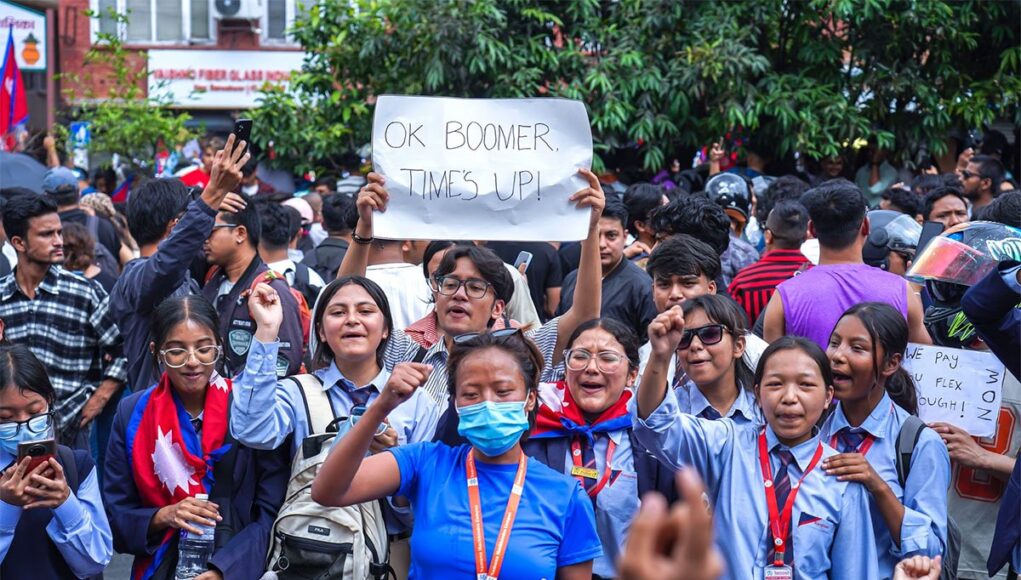Tens of thousands of Nepalis turned to Jack Dorsey’s new messaging app Bitchat after the government blocked major social media platforms during anti-corruption protests last week.
The protests, led mostly by young people, broke out in Kathmandu on September 4 after the authorities blocked 26 social media platforms, including Facebook, Instagram, WhatsApp, and YouTube. Officials said the move was to stop anti-government content, but it backfired.

Instead of calming the streets, it pushed more young Nepalis, into the streets against what they saw as corruption, nepotism, and lack of opportunities. Within days, the protests escalated.
Government buildings, including Nepal’s parliament and supreme court, were set on fire. Prime Minister K.P. Sharma Oli resigned on September 9 after facing public wrath.
Security forces responded with force. At least 19 people were killed, with some reports citing numbers as high as 34. Hundreds more were injured as police used live ammunition and tear gas on the crowds.

In the midst of the chaos, Bitchat downloads went through the roof. The app, developed by Twitter and Block founder Jack Dorsey along with open-source developer Calle, does not require an internet connection.
Instead, it uses Bluetooth mesh technology to send and receive messages. The app also relays messages through the Nostr protocol when an internet connection is present.
Both allow encrypted communication between devices.
According to Calle, Nepal had less than 3,500 downloads before the protests. By September 8 it was almost 49,000. “Today we’re seeing an even bigger spike from Nepal during youth protests over government corruption and a social media ban,” Calle wrote on X.
Nepal is now the largest user base of the app. For many young people, it was the only way to coordinate during the blackout. People reported the app spread like wildfire, with fast installations and friends or classmates passing it along to each other.
Bitchat was launched in July as an experiment, but the unrest in Nepal turned it into a real-world protest tool. The app has no central servers, no accounts, and no need for phone numbers or email addresses. This makes it hard for authorities to monitor or shut down.
According to the app’s white paper, no one can use cryptographic methods to prove that a specific user was the sender of a particular message. Messages are relayed across nearby devices, often within a 300-meter range, and remain encrypted during transit.
The app also has privacy features like “Panic Mode” which wipes all data with a simple triple tap — a nice option for protesters worried about surveillance or arrest.
Nepal is not the only country where Bitchat downloads spiked. Just a week earlier, protests in Indonesia over lawmakers’ pay increases also drove thousands to download the app.
About 11,000 Indonesians downloaded Bitchat after concerns over censorship, surveillance and violent crackdowns.
Observers see a bigger trend. As governments worldwide look for more control over digital communication, citizens are turning to so-called “freedom tech” — decentralized apps like Bitchat, Signal, Session and Status — to protect themselves.
For Dorsey and Calle, the protests in Nepal and Indonesia have shown Bitchat’s potential, but also what’s missing. Calle said the team is now working on adding Bitcoin-based payments through Ecash, to make the app a platform not just for communication, but also for private financial transactions.






